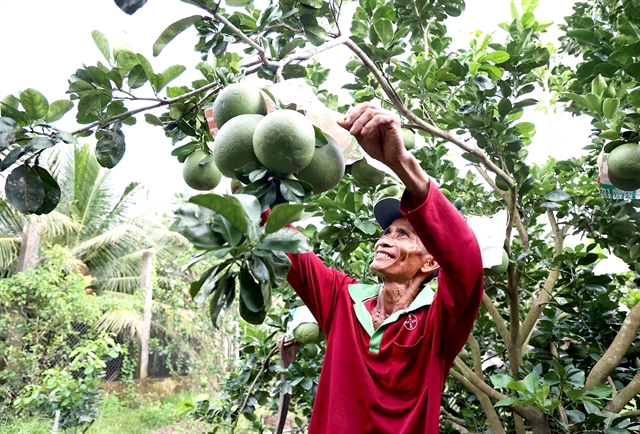The numbers investing in this sector remains modest, because the supportive mechanisms and policies for the investors are not attractive enough, according to experts.

HÀ NỘI — The State needs to have appropriate adjustments in mechanisms and policies to attract investors for green and sustainable agricultural development.
According to the Ministry of Agriculture and Rural Development, growth in the production value of the entire agricultural sector is estimated at between 3.1-3.4 per cent this year.
The total export turnover of agricultural, forestry and fishery products is estimated at US$62.4 billion, up 18.5 per cent. The sector's trade surplus reaches a record high of $18.6 billion, up 53.1 per cent.
To achieve that result, companies have been playing an increasingly important role in the agricultural value chain.
Over the past years, many major policies have been implemented to attract investment to the agricultural sector, said Huỳnh Bích Ngọc, general director of Thành Thành Công Group (TTC), an agricultural sector investment company, working in the sugar business.
However, Hồ Xuân Hùng, chairman of the Việt Nam General Association of Agriculture and Rural Development, said the numbers choosing to invest remain quite modest, because the supportive mechanisms and policies for the investors in agriculture are not attractive, including those specifically aimed at green agricultural development.
The connection between companies and farmers is not strong, with the farming community still operating in a relatively passive way, from production to product consumption.
According to the Director of the Institute for Policy Management, Chief Researcher of the National Data Strategy Chain Lê Nguyễn Thiên Nga, production in agriculture is faced with many obstacles, such as instability in the planning of raw material regions, the slow process of agricultural land accumulation and the lack of credit.
In addition, the supply of plant and animal breeds depends on imports, while domestic research institutes have not been effective in technology transfer. The product consumption market also has many instabilities.
The link between companies and distributors is not tight enough, while incentive policies on technology investment in agriculture are not strong enough.
In the future, the agricultural sector will have to aim for sustainable development, including accelerating the development of green and digital agriculture.
To achieve that goal, the agricultural sector needs the support of the Government, ministries, localities and farmers themselves.
Ngọc has suggested that the Government should continue to maintain and increase policies to support the domestic operators, in particular it needs solutions to protect the sugar industry from pressure from smuggled and products of unknown origin.
They need more programmes to support research and technology development in agriculture, to help improve their competitiveness.
The State should increase preferential credit packages to help farmers invest in raw materials, he said. In particular, it needs to encourage the public-private partnership (PPP) model, which will be a crucial foundation to strengthen the connection between the State, businesses and farmers.
“The Government and the Ministry of Agriculture and Rural Development need to have financial and policy supports for the enterprises,” said Nguyễn Quang Hiếu, director of External Relations, De Heus Vietnam Co, Ltd.
Specifically, they should promote funding for innovative projects, helping to produce environmentally friendly products.
They should reduce import taxes on raw materials and high-tech equipment.
They also need to continue to simplify licensing procedures and product quality inspection, and make bidding and licence processes for agricultural projects more transparent.
Promoting regional links and support for the chain between businesses and farmer cooperatives are needed, while they should increase investment in logistics and warehouse infrastructure.
The enterprises also hope that the Government will continue to impose corporate income tax exemption and reduction policies, while providing preferential capital sources suitable for research, innovation and technological modernisation.
In addition, they should support for the enterprises in innovation, development of human resources, and improvement of labour productivity.
Deputy Minister Phùng Đức Tiến suggested that commodity associations should coordinate with the Ministry of Agriculture and Rural Development and relevant ministries, branches and local areas to effectively implement supportive policies for farmers, cooperatives, associations and enterprises to implement the strategy on sustainable agricultural and rural development.
The associations need to propose supportive policies for organisations and individuals in implementing digital transformation and training for small and medium sized enterprises across the fields of production, processing and sales. — VNS





